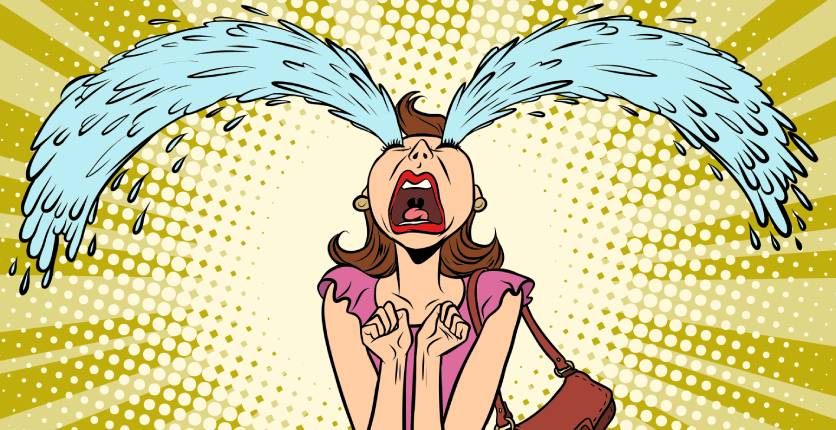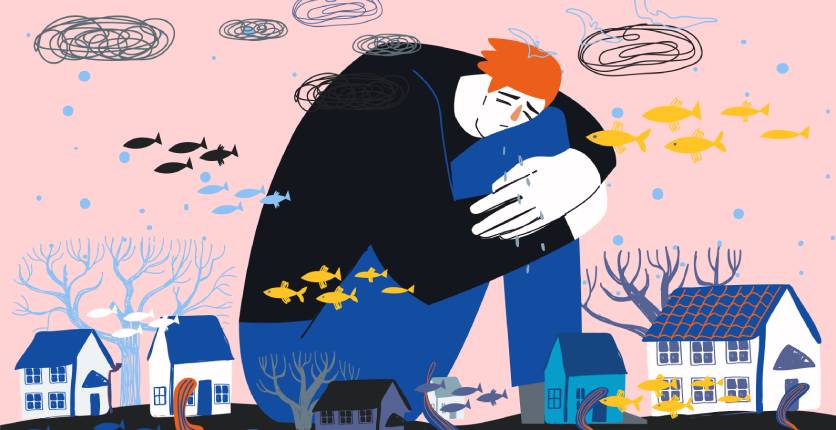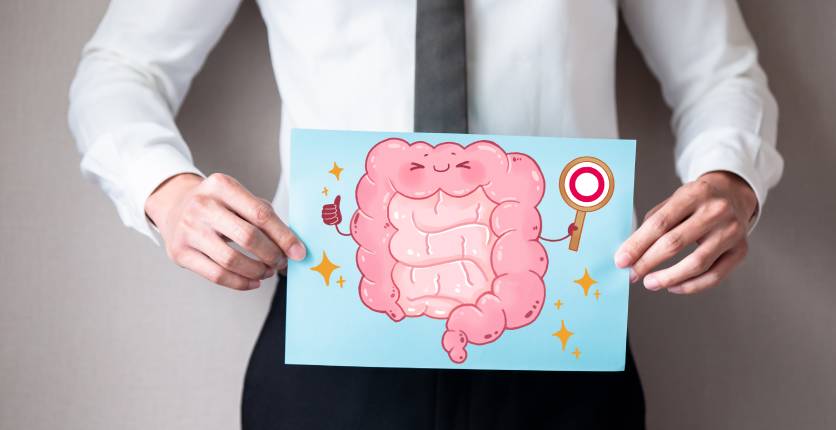When we were children, we were often told not to cry – whenever we fell and got ourselves a boo-boo, received a scolding from our parents, or during times we couldn’t get our way. This inculcated practice of holding back our tears is something that most of us have continued to hold onto as we grew into our adulthood. But, do we ought to? And for all of the time? The real truth: While there are occasions when it might be preferable to keep our composure, it is perfectly okay to cry when you actually need to.
Crying is a common, natural, healthy and, ultimately, human action, and this response to our many range of emotions can yield many health benefits as well. Here are 8 ways in which letting our tears run can not only help us feel better mentally and emotionally, be better for us physically and overall health-wise, and to do better as social, humane beings.
Tearing Up Is Our Natural Health-Detox For Our Body
A little 101’s in order. There are three kinds of tears: reflex, continuous or basal, and emotional. The first’s triggered by physical debris or irritants such as smoke, dust and, yes, onions too, and are released to wash out such irritants and debris from your eyes and protect them. Our tear ducts also constantly secrete basal or continuous tears which are actually 98-percent water and part protein-rich antibacterial liquid that contains the antimicrobial-enzyme lysozme to lubricate our eyes for when we blink and enabling us to see clearer; supplying oxygen and nutrients to our orbs; protecting them from dryness and bacterial infection; and even providing healing components for surface damages to our eyes.
Lastly, emotional tears are those shed in response to our emotions, that according to studies, can contain a higher level of stress hormones and other toxins than that of the first two kinds of tears. When we cry emotional tears, we are also potentially flushing these hormones and toxins from our system. Which means when you snivel, you’re also bidding goodbye to stress and all the other bad bodily stuff.
Turning On The Waterworks Downs Our Manganese Levels
Aside from irritants, bacteria, stress hormones and toxins, according to research, going “boo-hoo” can also help to lower the levels of manganese in our body. Now, how does lessening this mineral help us health-wise? Well, it’s said that manganese affects mood and is found in greater concentrations in tears than in blood serum; elevated manganese levels can be associated with aggression, irritability and anxiety. So reducing this mineral through our “eye sweats” might also lessen these aforementioned negative feels.

Wails Can Be Soothing
While letting your dam break may unnerve or cause distress to others, it may actually have a self-soothing effect on the crier (a.k.a. you). Studies have shown that crying activates the parasympathetic nervous system (PNS) – it helps the body relax, rest and digest – making it a natural mechanism to aid in self-soothing. By self-soothing, it means to regulate one’s own emotions, calm oneself and reduce his or her own distress. However, the benefits might be delayed; it could take a few minutes of you “dripping those precious watery pearls” before the soothing effects kick in.
Shedding Tears Eases The Pain
Aside from bringing on self-soothing effects, longer periods of letting your emotional river flow can also lead to the release of the oxytocin hormone and endogenous opioids (or endorphins). These “feel-good” bodily chemicals can help to dull both physical and emotional pain; once released, you might enter into a numb stage, with the oxytocin bestowing calmness. Pain is reduced, you feel relieved, and a sense of well-being is somewhat restored. So, cry, stop, then carry on.

Sobbing’s A Mood-Upper
Instead of being a downer, the specific act of sobbing can bring up your mood. As mentioned, oxytocin and endorphins can help to lift spirits – add the quick intake of cool air when you sob and there’s greater chance for your mood to improve after a sob-sesh. When cooler air is inhaled, it might regulate and lower the brain’s temperature – a cooler brain is more pleasurable for your body and mind than a warm one.
Bawling Out Restores Inner Balance
We get teary for all kinds of reasons and when we experience all kinds of feelings and emotions. It might be laughing till your stomach hurts at that too-funny joke your BFF cracked, being scared of the one big “unkillable” cockroach that flies at you wherever you run, frustration of having too much work piling up on you, or even simply just seeing your loved one happy – the tears can just come on, unexpectedly. It’s fine to do so – it’s just your body’s response and attempt at restoring emotional equilibrium for whenever you are experiencing strong emotions.

Weeping’s Part Of Grieving
The one-time when we might break down and cry one’s heart out uncontrollably? For when we lose a loved one. Grieving is a process that involves many emotional stages, from denial, anger, guilt and sorrow to numbness and even depression, and crying is an important part of this mourning period. It helps us to accept the loss, and recover from grief’s extreme mental, spiritual, emotional and physical effects.
Bringing On The Tears Also Brings About The Support
Know this: Whimpering does not mean you are weak, but it might mean you need some support. It can act as your body and mind’s distress call for aid from others. Being seen blubbering is not shameful but an attachment behaviour; it actually helps to let those around you, be it family, friends or even empathetic strangers, know to come forward to provide concern, care and comfort for you as a form of interpersonal or social benefit. The same goes for when you see someone else in tears because they are sad or in pain. Crying can help us become better people.
Some Final Notes On Crying
While crying’s a natural human response and avenue to express our emotions, there may be times when the act itself becomes excessive, too frequent or prolonged to the point where it could interfere with your everyday activities or relationships with others. It may be you might need to turn to some professional help outside of your familiar support network of family and friends. Try these few helplines for when the tears don’t stop:
– National Care Hotline: 1800-202-6868
– Samaritans of Singapore (SOS): 1800-221-4444
– Singapore Association for Mental Health (SAMH): 1800-283-7019
– Institute of Mental Health’s (IMH) Mental Health Helpline: 6389-2222
References: medicalnewstoday.com/articles/319631; healthline.com/health/benefits-of-crying; agingcare.com/articles/reasons-why-crying-is-good-for-your-health-146022.htm; stayprepared.sg/mymentalhealth/articles/the-benefits-of-crying/; https://www.health.harvard.edu/blog/is-crying-good-for-you-2021030122020#:~:text=Researchers%20have%20established%20that%20crying,both%20physical%20and%20emotional%20pain.










